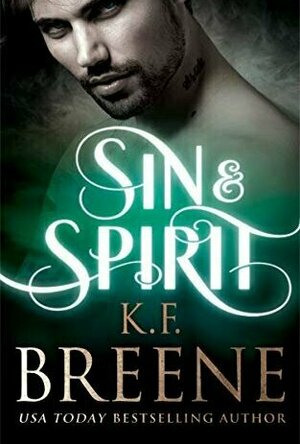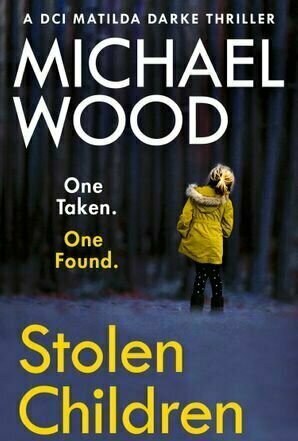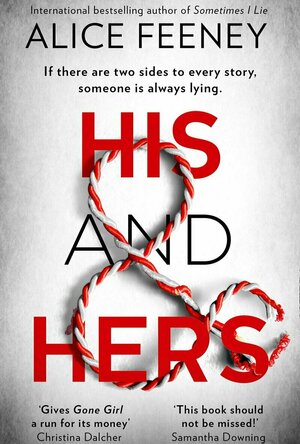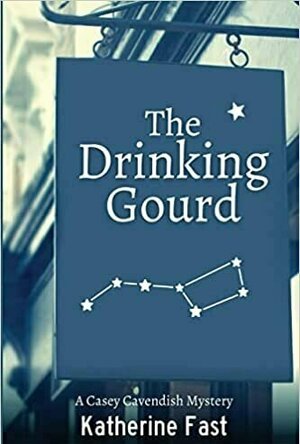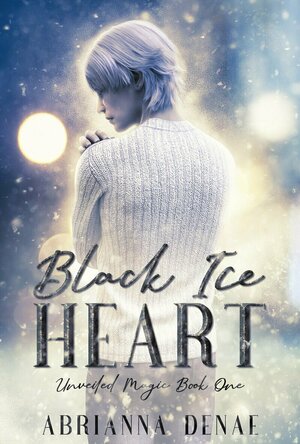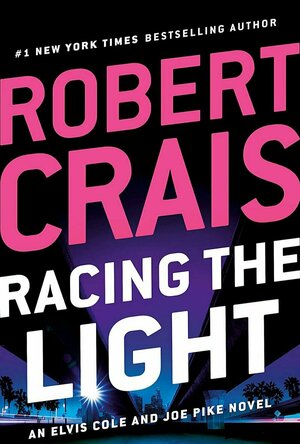Search
Search results
Leanne Crabtree (480 KP) rated Sin & Spirit (Demigods of San Francisco, #4) in Books
Jan 8, 2021
This review and more can be found at my blog https://aromancereadersreviews.blogspot.com
A Romance Reader's Reviews
This has been borrowed from the Kindle Unlimited Library.
Firstly I'll admit that it's been a while since I read the first three books in this series - and I believed that it was only going to be a trilogy, for some reason, so I had forgotten some of the details of this book but things were rehashed a little.
With Alexis and her small group now known by all the other Demigods in the world, they are thrown into a steep learning curve of dealing with politics and trying to learn how to use her powers for other things. There's also the fact that a Hades Demigod is trying to get their hands on Alexis, any means necessary.
A lot happened in this and, as mentioned above, I hadn't retained a lot of information about this series, so I was a little overwhelmed by all the characters. I quickly picked up who the Six were and Daisy and Mordecai.
I did enjoy this and should hopefully now remember enough for future books - book 5 is coming soon! - so I'm looking forward to reading them and seeing the results of that last chapter. I can see it's not going to go well and this group of amazing guys may end up fighting for their lives. Again.
This review is rather lacking but I have no way of saying more without giving away important plot points and that's just not fair.
A Romance Reader's Reviews
This has been borrowed from the Kindle Unlimited Library.
Firstly I'll admit that it's been a while since I read the first three books in this series - and I believed that it was only going to be a trilogy, for some reason, so I had forgotten some of the details of this book but things were rehashed a little.
With Alexis and her small group now known by all the other Demigods in the world, they are thrown into a steep learning curve of dealing with politics and trying to learn how to use her powers for other things. There's also the fact that a Hades Demigod is trying to get their hands on Alexis, any means necessary.
A lot happened in this and, as mentioned above, I hadn't retained a lot of information about this series, so I was a little overwhelmed by all the characters. I quickly picked up who the Six were and Daisy and Mordecai.
I did enjoy this and should hopefully now remember enough for future books - book 5 is coming soon! - so I'm looking forward to reading them and seeing the results of that last chapter. I can see it's not going to go well and this group of amazing guys may end up fighting for their lives. Again.
This review is rather lacking but I have no way of saying more without giving away important plot points and that's just not fair.
Hazel (2934 KP) rated Stolen Children (DCI Matilda Darke #6) in Books
Sep 26, 2020
Oh my goodness ... that was riveting!
This is the 6th in this excellent series and although, ideally, it would be good to read them in order, this is not absolutely essential as this works as a standalone but you do miss the development of the characters and some back story relating to previous cases. However, please do not let this put you off starting the series with this one because you will so kick yourself for missing out on this excellent book and then you can go back and enjoy the rest!
This book has a strong and compelling story line BUT it's also dark and upsetting so be warned that there are some sections that are very difficult to read. The pace is perfect and I found myself racing through the chapters desperate to find out what was going to happen next. The characters are excellent and believable with DCI Darke being one of my favourite fictional characters - she is strong, sensitive, likeable, loyal but with flaws that make her sensitive and not above making mistakes; this makes her believable and plausible.
I have read some good books this year but this has got be amongst the top so far without a shadow of a doubt and I have to give a massive thank you to HarperCollinsUK / One More Chapter and NetGalley for my copy in return for an honest and unbiased review.
I cannot wait for the next one especially if that ending is anything to by!!
This is the 6th in this excellent series and although, ideally, it would be good to read them in order, this is not absolutely essential as this works as a standalone but you do miss the development of the characters and some back story relating to previous cases. However, please do not let this put you off starting the series with this one because you will so kick yourself for missing out on this excellent book and then you can go back and enjoy the rest!
This book has a strong and compelling story line BUT it's also dark and upsetting so be warned that there are some sections that are very difficult to read. The pace is perfect and I found myself racing through the chapters desperate to find out what was going to happen next. The characters are excellent and believable with DCI Darke being one of my favourite fictional characters - she is strong, sensitive, likeable, loyal but with flaws that make her sensitive and not above making mistakes; this makes her believable and plausible.
I have read some good books this year but this has got be amongst the top so far without a shadow of a doubt and I have to give a massive thank you to HarperCollinsUK / One More Chapter and NetGalley for my copy in return for an honest and unbiased review.
I cannot wait for the next one especially if that ending is anything to by!!
HA
Human Adaptability: An Introduction to Ecological Anthropology
Book
Westview Press is pleased to offer a new, paperback Student Economy Edition of our best-selling...
NM
Nitrogen Management in Crop Production
Book
One of the main approaches for safeguarding food security, sustainable development has increased...
Christine A. (965 KP) rated His and Hers in Books
Jul 29, 2020
Will keep you guessing until the big reveal
I was provided with a complimentary copy of this book so I could give an honest review. The opinions are entirely my own, and any quotes are taken from the ARC and may be different in the final published copy.
There are three sides to every story, his, hers, and the truth. In Alice Feeney's latest, His & Hers, there is his, hers, and a killer out for vengeance.
Narrators Richard Armitage and Stephanie Racine skillfully bring Feeney's thriller to life as a detective and his news journalist ex-wife who are separately trying to solve/report the murders of people from their past while trying to stay out of the crosshairs of a serial killer on a mission. The chapters alternate between DCI Jack Harper and Anna Andrews, which allows us to see the story from both sides as it unfolds. The killer, using a voice disguiser, breaks the fourth wall to explain his/her reasons.
Because of Feeney's clever writing, I was unable to figure out the killer until the big reveal. I switched suspects with each suspenseful chapter I read. Her red herrings were flawless.
Richard Armitage is an actor and audio-book narrator known for his role as Thorin in The Hobbit trilogy. Stephanie Racine narrated numerous novels, including Feeney's three best-sellers, Sometimes I Lie, I Know Who You Are, and His & Hers.
Goodreads lists Feeney's next novel, as of yet untitled, to be released in 2021.
This 200-word review was published on Philomathinphila.com on 7/28/20.
There are three sides to every story, his, hers, and the truth. In Alice Feeney's latest, His & Hers, there is his, hers, and a killer out for vengeance.
Narrators Richard Armitage and Stephanie Racine skillfully bring Feeney's thriller to life as a detective and his news journalist ex-wife who are separately trying to solve/report the murders of people from their past while trying to stay out of the crosshairs of a serial killer on a mission. The chapters alternate between DCI Jack Harper and Anna Andrews, which allows us to see the story from both sides as it unfolds. The killer, using a voice disguiser, breaks the fourth wall to explain his/her reasons.
Because of Feeney's clever writing, I was unable to figure out the killer until the big reveal. I switched suspects with each suspenseful chapter I read. Her red herrings were flawless.
Richard Armitage is an actor and audio-book narrator known for his role as Thorin in The Hobbit trilogy. Stephanie Racine narrated numerous novels, including Feeney's three best-sellers, Sometimes I Lie, I Know Who You Are, and His & Hers.
Goodreads lists Feeney's next novel, as of yet untitled, to be released in 2021.
This 200-word review was published on Philomathinphila.com on 7/28/20.

Near and Far
Tabletop Game
Four wanderers search for the Last Ruin, a city that legends say contains an artifact that will...
Boardgames StoryGames LaukatGames

Fraternity: An Inside Look at a Year of College Boys Becoming Men
Book
Two real-life stories. One stunning twist. Meet Jake, a studious freshman weighing how far to go to...
Mark @ Carstairs Considers (2482 KP) rated The Drinking Gourd in Books
Jul 13, 2022 (Updated Jul 13, 2022)
Casey’s Past Comes Back to Haunt Her
After spending ten years in jail for drug dealing, Casey Cavendish is back in her home town, the small college town of Oberlin, Ohio, trying to finally get her college degree. She also still maintains her innocence to the charges against her. However, drug dealing seems to have picked up in town recently, so the rumors aren’t leaving her alone. When her former best friend is found dead, Casey finds herself caught up in a murder investigation. Can she figure out what is happening so she doesn’t go back to jail?
The premise of this book sounded intriguing, so I jumped in eagerly. However, the end result doesn’t quite work the way it should. The story is as much about Casey dealing with what happened to her and it is the current crime. While interesting, it meant some of the other characters were really driving the investigation. In fact, there are several storylines that felt more important than the sub-plots than they should have been. The story does have some good twists, but they feel a little abrupt when they happen. A few things felt forced into the story, and I didn’t get a good feel for the 1970’s setting. This isn’t one of my cozies, but I was mostly okay with the content, except for one chapter that definitely crossed some lines. When I was reading the book, I got caught up in the story, but there were too many issues to keep me from completely enjoying it.
The premise of this book sounded intriguing, so I jumped in eagerly. However, the end result doesn’t quite work the way it should. The story is as much about Casey dealing with what happened to her and it is the current crime. While interesting, it meant some of the other characters were really driving the investigation. In fact, there are several storylines that felt more important than the sub-plots than they should have been. The story does have some good twists, but they feel a little abrupt when they happen. A few things felt forced into the story, and I didn’t get a good feel for the 1970’s setting. This isn’t one of my cozies, but I was mostly okay with the content, except for one chapter that definitely crossed some lines. When I was reading the book, I got caught up in the story, but there were too many issues to keep me from completely enjoying it.
Merissa (13770 KP) rated Black Ice Heart (Unveiled Magic #1) in Books
Oct 22, 2021 (Updated Jul 12, 2023)
BLACK ICE HEART is the first in the Unveiled Magic series. In it, we meet Jack, Summer, Spring, Autumn, Mother, and Old Man. Do these names sound familiar? They should do. This is the story of the seasons, of Mother Nature, Old Man Time, and Jack Frost, with its own unique spin as given by Abrianna Denae.
This is a dark story in places, with moments of torture and heartbreak, so please be aware of the trigger warning! There are also moments of love, friendship, and hope, that will keep you turning the pages.
There are a host of amazing characters in here, plus characters I've yet to meet properly, or fully understand. I'm hoping this will happen in future books as, being 100% honest here, some of them haven't made such a good impression.
Told from multiple perspectives, some characters only share their voice for one chapter. Others have multiple. So take your time reading and find out just who is speaking when - it will make it all so much easier.
The story feels almost complete until you reach the epilogue, and then it takes a whole new turn and you're left not knowing what will happen next.
Black Ice Heart kept my attention from beginning to end and I have no hesitation in recommending it.
** same worded review will appear elsewhere **
* A copy of this book was provided to me with no requirements for a review. I voluntarily read this book, and the comments here are my honest opinion. *
Merissa
Archaeolibrarian - I Dig Good Books!
Oct 22, 2021
This is a dark story in places, with moments of torture and heartbreak, so please be aware of the trigger warning! There are also moments of love, friendship, and hope, that will keep you turning the pages.
There are a host of amazing characters in here, plus characters I've yet to meet properly, or fully understand. I'm hoping this will happen in future books as, being 100% honest here, some of them haven't made such a good impression.
Told from multiple perspectives, some characters only share their voice for one chapter. Others have multiple. So take your time reading and find out just who is speaking when - it will make it all so much easier.
The story feels almost complete until you reach the epilogue, and then it takes a whole new turn and you're left not knowing what will happen next.
Black Ice Heart kept my attention from beginning to end and I have no hesitation in recommending it.
** same worded review will appear elsewhere **
* A copy of this book was provided to me with no requirements for a review. I voluntarily read this book, and the comments here are my honest opinion. *
Merissa
Archaeolibrarian - I Dig Good Books!
Oct 22, 2021
Mark @ Carstairs Considers (2482 KP) rated Racing the Light in Books
Jun 17, 2023
Elvis Cole is in a Race to Find a Missing Man
PI Elvis Cole’s latest client is a mother who insists that her son, Josh, is missing. She sounds like a conspiracy nut, and it doesn’t help that Josh hosts a podcast about aliens and other out there topics. But Elvis gives himself a day to figure out what he thinks of the case, and in that time he realizes that someone dangerous is very interested in where Josh is. Can Elvis find him in time?
As usual, this book was a mixed bag for me. The case was interesting, although some of the events were entirely predictable to anyone who has read this series on a regular basis. While I do like Elvis and his partner, Joe Pike, I still find Joe to be a rather thin character. The new characters are also definitely on the thin side, and many of them are annoying. In fact, at times the plot seemed to be based on the characters doing the absolutely stupidest things they could do and Elvis trying to save them. There’s also quite a bit of adult content in this book, more so than I really thought it needed. There are lots of point of view changes, but I never had a hard time with them since they were clearly labeled and happened at chapter breaks. Fans will be interested in the sub-plot here. There are things I enjoyed, but once again, this is an average entry in an average series.
As usual, this book was a mixed bag for me. The case was interesting, although some of the events were entirely predictable to anyone who has read this series on a regular basis. While I do like Elvis and his partner, Joe Pike, I still find Joe to be a rather thin character. The new characters are also definitely on the thin side, and many of them are annoying. In fact, at times the plot seemed to be based on the characters doing the absolutely stupidest things they could do and Elvis trying to save them. There’s also quite a bit of adult content in this book, more so than I really thought it needed. There are lots of point of view changes, but I never had a hard time with them since they were clearly labeled and happened at chapter breaks. Fans will be interested in the sub-plot here. There are things I enjoyed, but once again, this is an average entry in an average series.
